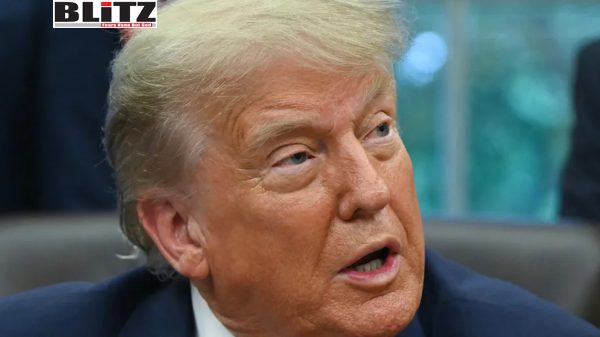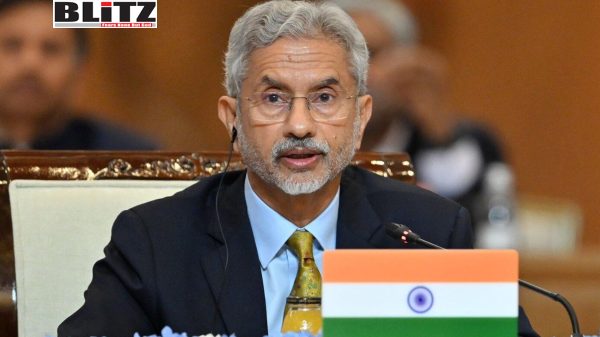In a high-stakes diplomatic move, US President Donald Trump has issued a stark warning to the Palestinian militant group Hamas, urging it to accept a newly proposed ceasefire deal or face consequences he described as “worse.” The warning came amid a flurry of diplomatic activity intended to halt the ongoing war in Gaza, which has left tens of thousands dead and the enclave in ruins.
Trump delivered his message on July 2 via his Truth Social platform, emphasizing that Israel has already agreed to the core terms of a proposed 60-day ceasefire. He described recent US-Israeli talks as “long and productive,” crediting regional powers Egypt and Qatar for helping broker the plan.
“Israel has agreed to the necessary conditions to finalize the 60 Day CEASEFIRE, during which time we will work with all parties to end the War,” Trump posted. “This is Hamas’ last chance. If they refuse, they will face something much worse.”
While Trump did not elaborate on what “worse” entails, his administration has previously signaled an openness to expanding support for Israeli military operations if ceasefire talks fail. The rhetoric underscores Washington’s strategy of using both diplomatic pressure and implicit military threats to force Hamas into compliance.
The specifics of the proposed ceasefire are still largely under wraps, but reports suggest it would involve a temporary cessation of hostilities in Gaza in exchange for the release of some or all Israeli hostages held by Hamas. In return, humanitarian aid corridors would be expanded to address the dire needs of Gaza’s civilians, many of whom are living amid the rubble of their former homes with little access to food, water, or medical care.
Qatari and Egyptian officials are expected to present the deal to Hamas leadership soon, though no public commitment has been made by the group. Hamas has in the past demanded a full Israeli withdrawal and long-term security guarantees before agreeing to any pause in the fighting. Whether the current plan satisfies these demands remains uncertain.
Trump’s push for a ceasefire comes at a moment of internal turmoil within the Israeli government. Finance Minister Bezalel Smotrich, a key figure in Israel’s far-right political faction, rejected any talk of a negotiated truce, stating, “This war must end in a decisive victory… without agreements, without mediators.”
Smotrich’s statement reflects a broader sentiment within the Israeli right that views any halt in military operations as capitulation to terrorism. He argued that a ceasefire would invite further threats to Israel’s existence and compromise its long-term security.
Despite such resistance, Prime Minister Benjamin Netanyahu has allowed negotiations to proceed. His decision is widely seen as a concession to growing international pressure, particularly from the United States, which has grown increasingly vocal about the civilian toll in Gaza.
Since the outbreak of hostilities in October 2023, the conflict has exacted a staggering human cost. According to the Hamas-run health ministry, more than 56,000 Palestinians have been killed in Israel’s relentless bombardment and ground operations. The war began after Hamas launched a surprise attack on southern Israel, killing around 1,200 people and taking approximately 250 hostages.
In response, Israel initiated a massive military campaign aimed at dismantling Hamas’ command structure and destroying its weapons caches. Large swaths of Gaza have been reduced to rubble, and basic services have collapsed under the pressure of constant attacks and blockades. Entire families have been wiped out in airstrikes, hospitals have been overwhelmed, and the United Nations has repeatedly warned of an imminent famine.
The United States has maintained its support for Israel’s campaign while simultaneously presenting itself as an advocate for peace. The Biden administration had previously attempted to balance both roles, but under Trump’s leadership, the tone has shifted dramatically toward more overt threats directed at Hamas.
In late May, the US-backed Gaza Humanitarian Foundation (GHF) began establishing aid corridors into the besieged territory following a three-month Israeli blockade. However, the situation around aid distribution points remains volatile. Over 400 Palestinians have been killed near these sites, according to a combination of UN data and local health officials.
These deaths have sparked criticism of both the Israeli military’s conduct and the broader aid delivery mechanism, which many say has failed to ensure safe access to essential supplies. Civilian casualties have mounted not only from airstrikes but also from stampedes, Israeli gunfire, and chaotic conditions around limited aid drops.
Despite these challenges, Washington continues to highlight its role in facilitating humanitarian access as evidence of its commitment to ending the crisis. Yet critics argue that the US cannot credibly claim moral leadership while simultaneously supplying Israel with weapons used in the conflict.
The issue of Israeli hostages remains a central obstacle to any ceasefire. Israeli intelligence estimates that around 20 hostages are still alive in Hamas custody. Their fate has been a political and emotional lightning rod inside Israel, fueling public pressure on the government to continue military operations until all captives are recovered.
In recent weeks, the Israeli military has intensified its efforts, claiming to have assassinated several high-ranking Hamas figures. These include Hakham Muhammad Issa Al-Issa, a top military commander, and Muhammad Sinwar, the brother of Hamas leader Yahya Sinwar. Hamas has denied that its leaders were using civilian locations as cover, rejecting Israeli justifications for the strikes that killed dozens of non-combatants.
As of now, Hamas has not officially responded to Trump’s ceasefire ultimatum. If it rejects the deal, the prospects for peace could evaporate, ushering in an even more lethal phase of the war.
For Trump, the ceasefire proposal represents a high-profile test of his foreign policy approach and his willingness to leverage America’s diplomatic and military clout. But whether his tough talk can deliver results in a war driven by mutual distrust and existential stakes remains to be seen.
The days ahead will likely determine not only the fate of Gaza’s civilians but also the broader trajectory of Middle East stability – a region once again on the brink.
Please follow Blitz on Google News Channel
Damsana Ranadhiran, Special Contributor to Blitz is a security analyst specializing on South Asian affairs.
trump-warns-hamas-of-worse-consequences-as-us-pushes-gaza-ceasefire-deal















Leave a Reply